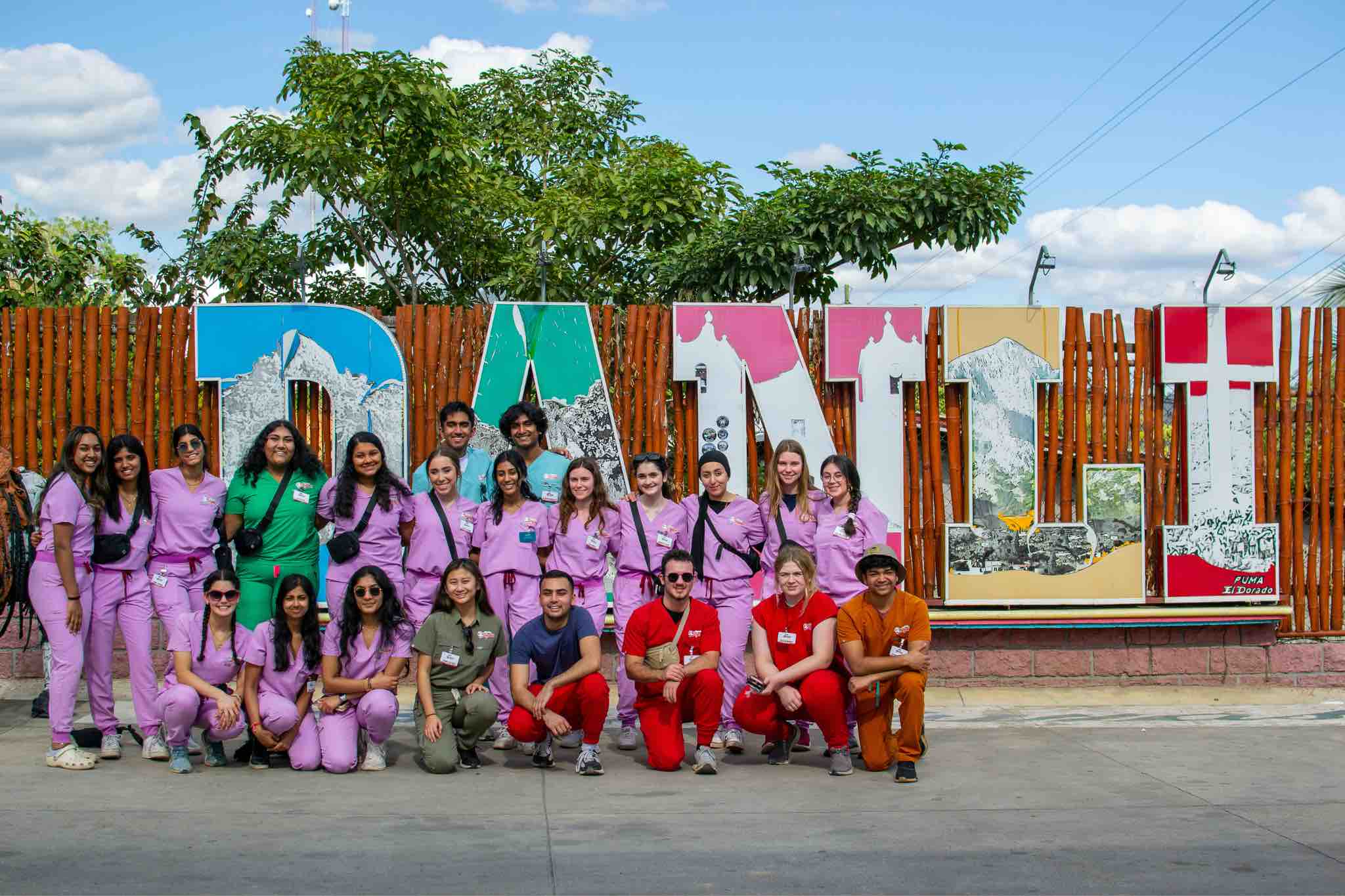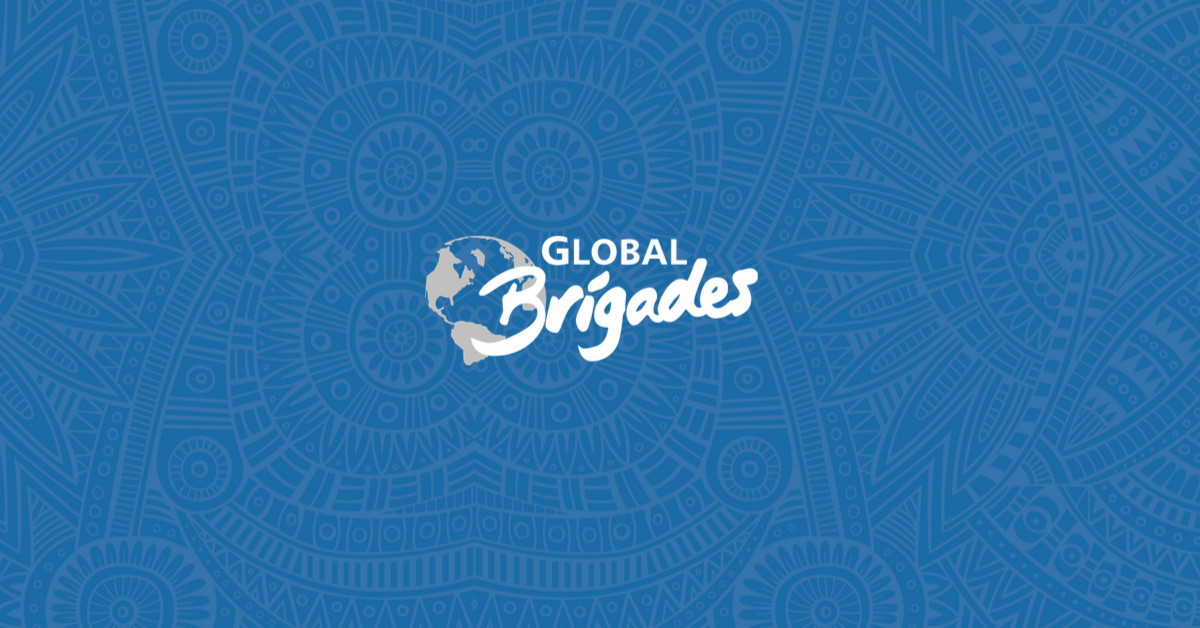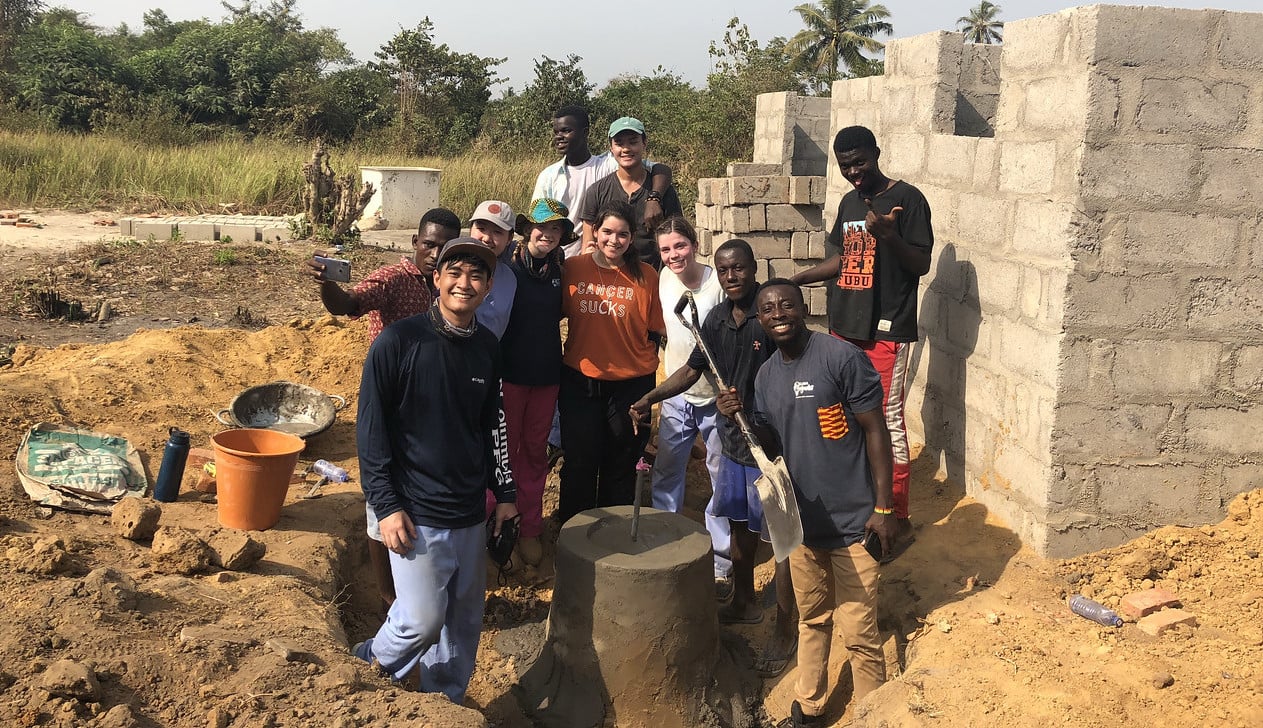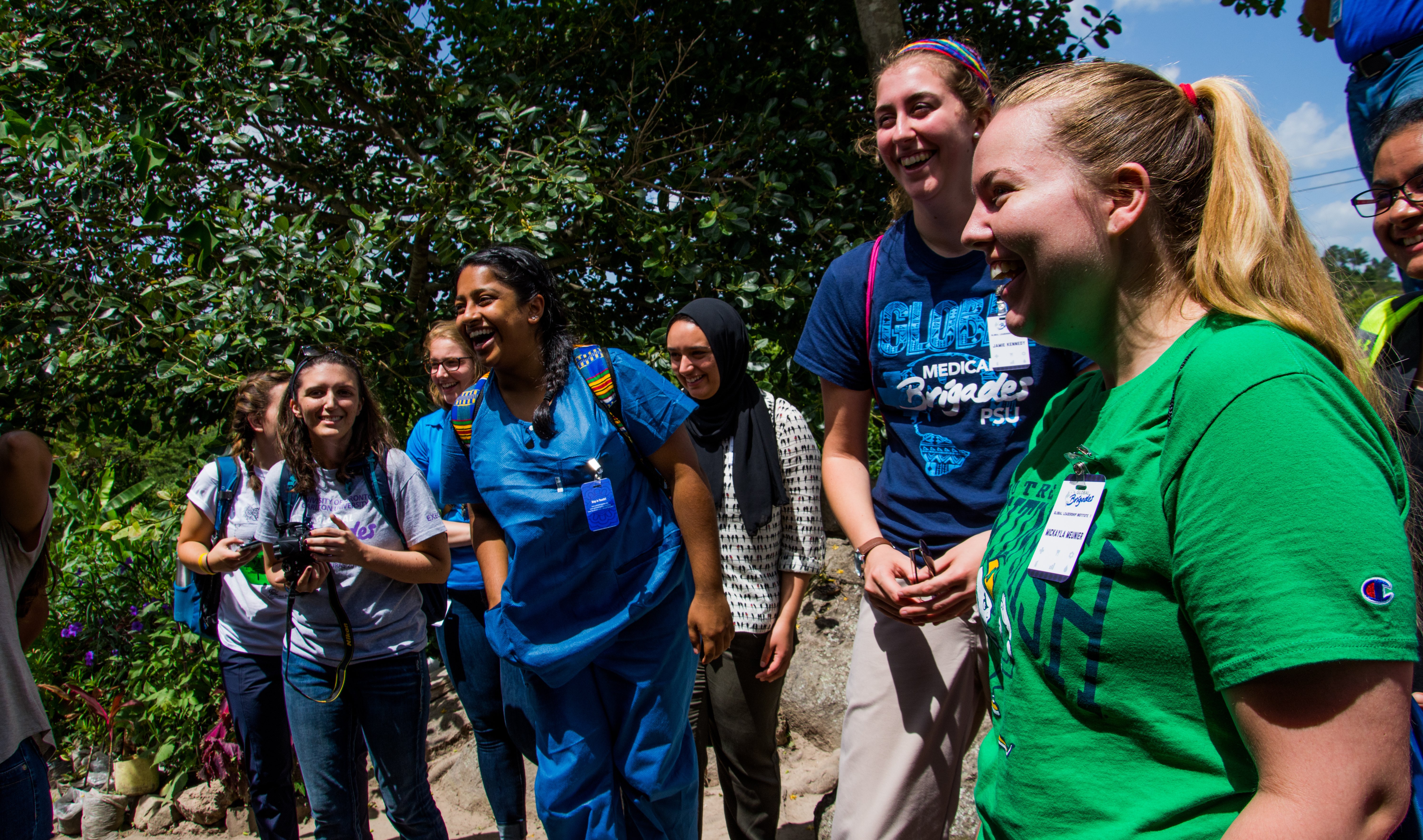Global Brigades operates within a holistic model to meet the health, infrastructure, and economic needs of our partner communities. Our goal is to empower the communities we work with to the point where they take the lead on shared initiatives.
Our sustainable approach is the foundation for a lasting positive impact where communities can thrive with dignity and autonomy. By mobilizing student volunteers within each Brigade, we’re able to address each local community’s immediate needs while fostering self-sustaining progress.
Impact on Local Culture
Our purpose within partner communities is never about preconceived notions of what a healthy community should look like. We work hard to avoid any semblance of white saviorism or disempowering activities that take away from the unique culture of our partners.
Instead, we work with communities to identify areas of need and potential growth that respect traditions, cultures, and knowledge. This isn’t performative activism. A collaborative, culturally sensitive approach is more sustainable and builds community ownership.
We involve as many community members as possible in the day-to-day operations of Brigades and long-term projects. This can involve training on clinic management or engaging community members’ knowledge and expertise in projects to ensure a sustainable fit.
For our volunteers, work on Brigades is most meaningful when it’s treated as a cultural exchange. We educate our volunteers on ethical volunteerism that considers the unique history and traditions of our partner communities and develops a cultural competence before each Brigade.
This can look like learning about the political history of Ghana or key Spanish phrases for work inHonduras. By fostering mutual respect and understanding, our efforts combat enthocentrism and enhance the cultural fabric of partner communities.
As the largest student-led movement for global health, Global Medical Brigades looks beyond immediate impacts to prioritize long-term sustabilility in our partner communities.
Health and Well-Being Improvements
Global Brigades is aligned with three Sustainable Development Goals (SDGs) adopted by the United Nations:
- Good Health and Well-Being (3)
- Clean Water and Sanitation (6)
- Decent Work and Economic Growth (8)
Our Medical Brigades have had a substantial impact on both immediate medical needs and long-term healthcare education in partner communities. Work on Medical Brigades includes:
- Setting up mobile medical clinics to address barriers to public health, provide health consultations, and treat common ailments.
- Education from local full-time staff members and volunteers around improved wellness, hygiene, vaccine protocols, and preventative care.
- Public infrastructure projects and Water, Sanitation, and Hygiene (WASH) programming to support access to safe drinking water and reduce waterborne illnesses.
- Dental services to support improved oral health and reduced risk of oral infection.
- Training of local health workers to ensure the benefits of Brigades are sustainable.
Healthcare needs vary by community. Our Polyclinic in Athens receives patients with medical needs referred to us by nonprofits working within nearby camps and shelters.
In Panama, we’ve worked with over 200 community partners to establish a comprehensive community health workers (CHWs) program.
Over 60 CHWs (community health workers) have been trained and equipped to support sustainable health in Panamanian cities as part of those efforts.
Economic Benefits
Our mission in all of our partner communities is to create systems that empower and inspire. The impact of our work on local economic development are multi-facted, but they come from strong collaboration and an understanding of the economic goals of communities.
Globally, a healthier population has a positive ripple effect on economic disparities. Regular and affordable access to medical care reduces healthcare costs for families, allowing people to focus resources on other needs related to economic growth.
Boosting overall health and reducing the risk of recurrent infections and chronic illness can boost productivity. Offering new jobs in the form of healthcare or infrastructure work introduces new streams of income for communities lacking similar opportunities.
We’ve also established over 100 Community Bank locations in our partner communities to offer affordable lines of credit for small businesses and financing options for home improvements.
In Honduras, we’ve been particularly focused on women-led micro-enterprises that support gender equality efforts in Central America through our work with Global Business Brigades.
That includes woman-owned bakeries in rural communities like El Cantón and Fray Lazaro and recruitment of female healthcare professionals at medical clinics. We’ve also seen a boost in female membership in Honduran financial literacy workshops.
Environmental Sustainability
Global Brigades takes a big-picture approach to mitigating adverse environmental impacts of our operations while balancing the needs of our partner communities. That includes initiatives like WASH programming and our Carbon Offsetting Program.
The WASH components of our efforts are essential to the health of our partner communities as a human rights concern and enhanced ecosystem health. To ensure long-term stability, projects are designed with accessible water sources, are education-based, and are community-led.
Part of our WASH programming is increasing access to clean burning stoves and water storage to reduce environmental impacts, promote water conservation, and reduce waste. Clean drinking water systems also boost a community’s resilience to climate change.
Our Carbon Offsetting Program defines our work to achieve carbon neutrality for our entire organization. We’ve focused on strategic planting initiatives and watershed reforestation efforts in communities around Honduras, a country with high rates of deforestation.
So far, we’ve partnered with over 30 farmers and 14 communities in Honduras on planting initiatives to improve the environmental and economic outlook of those communities. We’re on track to meet our goal of planting 27,000 trees by the end of 2024.
Community Empowerment
Every decision we make is in collaboration with our partner communities. This is part of our holistic, sustainable approach to not only international volunteering but our end goal of empowered communities.
Our organization does not identify needs and solutions on its own but collaborates with our partners to ensure local ownership over decisions and a long-term impact.
These practices have allowed us to:
- Establish over 100 Community Banks: These banks provide access to affordable credit, microfinance support, and financial literacy to lift people out of poverty. This helps individuals start or expand businesses, increase their income, and boost morale.
- Train over 700 CHWs: Medical and Dental Brigades address immediate health needs and promote preventive care. Trained health workers eventually take the lead at clinics, ensuring ongoing care and health education.
- Build capacity within communities: Continuous education and capacity-building are central to our approach. We’ve worked with communities in need of health, agricultural, and infrastructure support to drive long-term impacts.
- Create a pathway to grow local economies: We want to reduce reliance on direct interventions and evolve our community relationships into one of follow-up and monitoring as they grow towards self-sufficiency. This is true sustainable development.
Long-term Goals and Vision
Sustainable development in partner communities means consistent evaluation of our work by both local staff and in-home office staff. That includes community feedback. From here, we make evidence-based decisions based on the needs of those communities.
Sometimes, that means adjusting the programming. Our flexible approach allows us to continue working toward our ultimate goal: helping communities achieve lasting autonomy.
The support of our volunteers and university students is a key component of our long-term goals. If you’re interested in helping us create sustainable healthcare systems, considering joining a Medical Brigade







